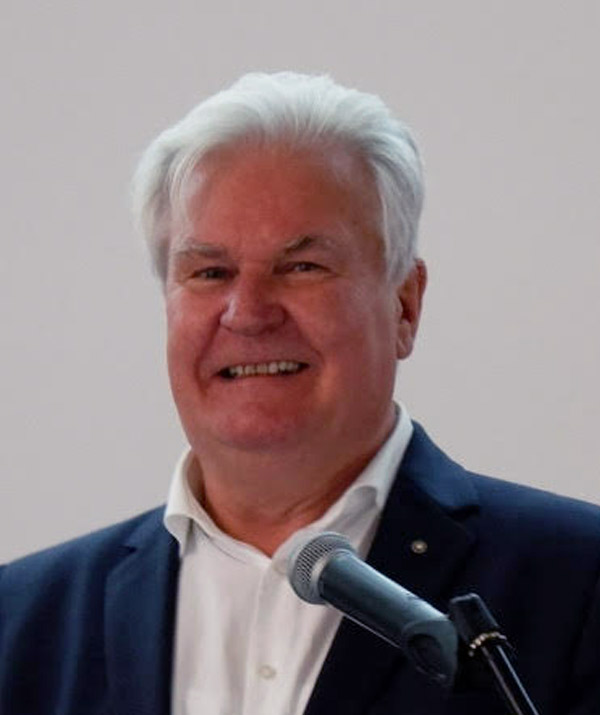Didier Finet is a prominent figure in the educational landscape of Flanders, Belgium, renowned for his significant contributions to Catholic primary education. With a wealth of experience and a passion for empowering teachers, he has made an indelible impression on various educational organizations and initiatives.
As a respected figure in the field, Didier Finet has served as the honorary head supervisor of the pedagogical support service for Catholic primary education. In this role, he has provided invaluable guidance and support to teachers, administrators, and school boards, helping them effectively navigate the complexities of teaching, learning, and policymaking. His dedication to promoting a stimulating and inclusive learning environment, where sustainability, diversity, and inclusion are central, has earned him respect and admiration from colleagues and peers.
In addition to his role in pedagogical support, Didier Finet has also held the esteemed position of chairman of the Don Bosco Education Center in Flanders. Through his leadership, characterized by servant leadership (Auctoritas Ministrando), he has played a key role in promoting the mission of the center, which focuses on promoting holistic education rooted in the principles of warmth, reasonableness, and faith as the defining characteristics of pedagogical love.
Currently, Didier Finet serves as the chairman of DHOS Brugge, an organization dedicated to the professional development of teachers and school leaders in compulsory education. Under his leadership and that of his vice-chairman, Mathias Chlarie, DHOS Brugge has become a leading force in promoting excellence in education through an innovative three-year program focusing on educational vision, mastery, and leadership. Here, they strive to integrate European values into the curriculum, emphasizing international cooperation, cultural exchange, and European values such as solidarity and respect for diversity.
A firm believer in the potential of every individual, Didier Finet’s motto, “Plus est en vous” (There is more in you), encapsulates his philosophy of nurturing talent and ambition. He is a staunch advocate for fostering a culture of lifelong learning and personal growth, encouraging both leaders, teachers, and students to strive for excellence and reach their full potential.
Throughout his career, Didier Finet has been a driving force behind initiatives aimed at promoting educational excellence and fostering a culture of continuous improvement. His unwavering dedication to the field of education and his steadfast commitment to empowering others serve as inspiration for all who have the privilege of working with him.
Co-creation of Knowledge; INCLUSION2
Workshop
Co-presenting with Marije Bent, Frank de Jong, Ruth Mansueto, Julian Ng, Rik Vanderhauwaert
Futureland asks to imagine a better world and proposes educational ways to achieve it. INCLUSION2 Erasmus+ project aims to contribute to a more inclusive world e.g. besides cultural diversity, physical, and mental disadvantages, etc. also nature inclusiveness. The project supports the design of inclusive education in teacher professional learning communities through processes of co-creation. Co-creation means building new perspectives together, improving ideas, or developing new ideas or solutions and products related to dilemmas or problems that a community faces in making education more inclusive (De Jong, 2021).
In co-creative conversation teachers as, knowledge builders, transcend trivialities, oversimplifications and move beyond current (best) practices'” (Scardamalia & Bereiter, 2010, p. 10; Scardamalia, 2002, p. 79). This synthesizing leads to a “new” conceptual artifact, e.g., insight, perspective to go out and thereby enrich the working or school community. Thus, co-creation is distinct from debate and discussion and, from cooperative learning and learning together in and group or team. In the latter, it is much more about the knowledge applying or re-construction existing knowledge than about creating or building new insights, solutions, and so on.
The INCLUSION 2 co-creation design processes aim to create learning environments for students that are more ‘inclusive’ to foster education more sustainably by teachers in Malta, Ireland, Belgium, and the Netherlands. It is supported by a Frame of Thinking (FOT) and Building Blocks. Both are products that are developed within the project. So, the project process stimulates sustainable collaboration with teachers internationally for more inclusive education.
The FoT gives direction for how teachers can co-create creative curricula and lessons. It provides guidelines on how to support and design this type of working and thinking. It is hoped that this leads to diverse didactic methods. The FoT consists of guiding principles that can be used in diverse contexts and learning organizations for practitioners to change mindsets and practice through actively co-creating within a professional learning community becoming creative to design inclusive lessons and curricula. The FoT guides the support of e-environment tools, facilitators, and practical anchors which reflect the principles, and constructive actions for the creative co-creating knowledge-building process.
Building blocks are evidence-informed and tested materials to work bottom-up on inclusive schools for a sustainable future. They are constructed in line with the developed FOT. It includes examples of good practice, ideas for pedagogical practice that support a greater focus on student engagement, and more inclusive schools for a sustainable future. It supports creative working in partnerships with students and teachers to realize bottom-up inclusive schools for a sustainable future.
In this workshop, you will experience a SPRINT to understand INCLUSION2‘s key goals, activities, and methods. You come up with your own ideas you want to work on. Together you build on the design issue you selected as a group. In small groups, together you propose improvements or promising solutions to the design issue; explore obstacles and activities to plan to realize the improvements; you ‘rise above’ the initial ideas and share recommendations with the other groups.


